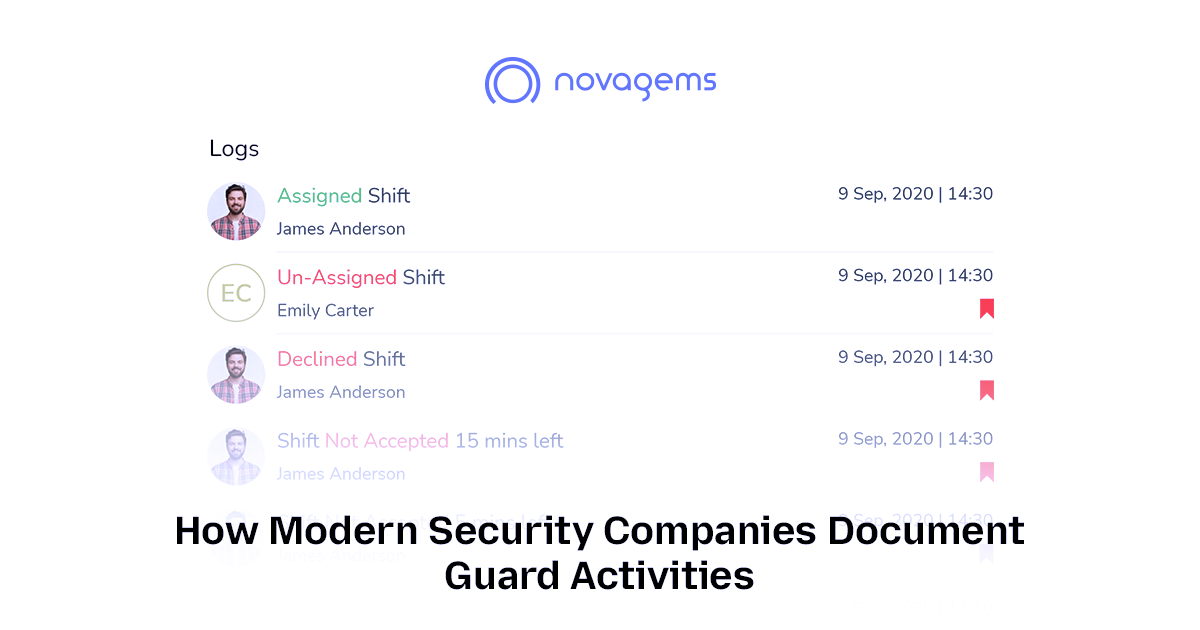How to Balance Work Life with a Successful Cleaning Business
Tue, Jun 3, 2025
Read in 12 minutes
Discover how you can have work life balance at work and manage a successful cleaning business. Use these strategies, tips, and tricks to have peace of mind with a business that strives.

Building a thriving cleaning business can be incredibly rewarding, both financially and professionally. However, it often comes with a unique set of challenges that can tip the scales away from a healthy work-life balance. Many cleaning business owners find themselves working long hours, juggling multiple clients, and managing staff schedules. And still trying to find time for family and personal interests. If this sounds familiar, you’re not alone.
The key to have a work-life balance is to develop a structured approach that lets you effectively handle business tasks without losing sight of what really matters. That is your own well-being. In this blog, we’ll discuss why work-life balance is crucial in the cleaning industry, explore practical time management techniques, and examine how setting boundaries, delegating responsibilities, and embracing technology can help you maintain a happier, more fulfilling life while running a successful cleaning business.
Why Work-Life Balance At Work Matters in the Cleaning Industry
-
High Physical and Mental Demands
Cleaning may seem straightforward, but it’s physically and mentally demanding. You spend a lot of time on your feet, using equipment, moving supplies, and visiting different locations. Over time, this can take a toll on your body, leading to fatigue, back pain, or stress-related issues. When work takes over your life, you have less time for exercise, relaxation, or proper rest—all of which are essential for maintaining health.
In addition, the mental pressure of running a business can become overwhelming if you don’t carve out personal time. Whether you’re worried about pleasing clients, managing employee schedules, or dealing with unexpected cancellations, the stress can quickly build up. This is why a proper work-life balance is non-negotiable. It ensures you remain energized, focused, and mentally prepared to face the day’s challenges.
-
Avoiding Burnout and Enhancing Productivity
Burnout is a common problem in service-based industries, including cleaning. When you’re always “on,” you risk losing the passion that drove you to start your business in the first place. Burnout often manifests as constant fatigue, irritability, and reduced job satisfaction, which can lead to high employee turnover or unhappy clients if you’re not performing your best.
By maintaining a healthier balance, you’re more likely to be productive when you work. A rested mind and body can accomplish tasks faster, with fewer mistakes. When you’re well-rested, you can handle your clients’ demands more effectively, plan your next steps strategically, and still have the energy to spend time with loved ones or enjoy your hobbies after work.
-
Building a Sustainable Business
A strong work-life balance doesn’t just help you personally; it also supports sustainable business growth. When you operate from a place of calm and well-being, you can make better decisions about expanding your services, hiring new team members, or investing in marketing. Clients will notice that you’re not overwhelmed or rushing through tasks. And they’ll appreciate the consistency and quality you deliver. Over time, this enhances your reputation, leading to positive word-of-mouth and more referrals. As a cleaning company owner, you need to have a good idea of how time and management work in harmony.
Tips for Attaining a Good Work-Life Balance as a Cleaning Business Owner
-
Create a Detailed Schedule
A detailed schedule is one of the best tools for managing a busy cleaning business. Rather than trying to keep everything in your head, use a planner or an online calendar. Block off time for client appointments, staff meetings, and administrative tasks like updating invoices or restocking supplies. Make sure you also schedule in “buffer time” for breaks, travel delays, or unexpected client needs. Having a visual map of your day helps you stay on track and reduces the chance of overlooked tasks or double bookings.
-
Prioritize Daily Tasks
Not all tasks carry the same weight. Some tasks, like meeting a prospective client or finalizing a big contract, might significantly impact your business’s growth. Others, such as sending a routine email or reorganizing a supply closet, might not be as urgent. Categorize your tasks based on urgency and importance. Tackle the most important tasks first when you have the most energy, and then handle the smaller tasks later. This approach ensures that your top priorities get the attention they deserve and helps prevent you from feeling overwhelmed by a lengthy to-do list.
-
Use Time-Blocking Techniques
Time-blocking involves dividing your day into blocks for specific tasks or types of tasks. For instance, you can reserve morning hours for deep cleaning tasks and afternoon hours for administrative duties like scheduling or responding to client inquiries. This strategy helps you maintain focus on one type of activity at a time, making you more efficient and less prone to distractions. It also helps prevent the habit of multitasking. Which often reduces productivity and increases errors. And that is the first step to having a work-life balance at work.
-
Take Regular Breaks
It can be tempting to work straight through the day to maximize billable hours, but short breaks actually boost productivity. Stepping away for a few minutes to stretch, hydrate, or eat a healthy snack can recharge your energy levels. If you ignore the need to rest, your performance might decline, leading to mistakes or rushed work. Remember, a short break can make a big difference in how you feel by the end of the day.
-
Setting Boundaries Between Business and Personal Life
-
Define Working Hours and Stick to Them
Setting clear working hours is a fundamental way to separate your professional responsibilities from personal time. If you decide that your cleaning business operates from 8 AM to 6 PM, try to avoid scheduling tasks after this period. Communicate these hours to clients and staff so they know when you’re available. This reduces the pressure to be “on call” 24/7.
-
Limit After-Hours Communication
In today’s connected world, it’s easy to receive calls, texts, or emails around the clock. While it may seem essential to respond immediately to every inquiry, constantly staying in work mode can strain your mental health and personal relationships. Set up an autoresponder for emails that arrive after hours, informing senders that you’ll get back to them the next business day. For phone calls, consider using a second line for business or a voicemail system that clearly states your business hours. This approach maintains professionalism while still protecting your personal time.
-
Communicate Boundaries with Family and Friends
It’s equally important to communicate your schedule to family and friends. If they understand that you have specific work hours, they’re less likely to interrupt you during those times. Likewise, they’ll also respect your downtime, giving you space to relax and recharge. By setting expectations, you ensure that your personal interactions remain harmonious and don’t clash with your professional obligations. And this way you keep a clear mind and maintain work life balance at work.
-
Schedule Personal Time
One often overlooked aspect of boundary setting is proactively scheduling personal time. This could be time spent with family, an afternoon for a hobby, or even a simple walk in the park. Putting personal commitments on the calendar—and treating them as seriously as a client appointment—helps ensure you actually get that restorative time for yourself.
-
Delegation: Empowering Your Cleaning Team
-
Hire and Train the Right People
A strong team is critical for maintaining work-life balance. When you trust your employees to handle tasks effectively, you don’t have to do everything yourself. This starts with hiring individuals who are reliable, detail-oriented, and share your commitment to excellent customer service. Once hired, invest time in training them thoroughly. Show them the right cleaning techniques, how to interact with clients and the systems you use for scheduling or reporting.

-
Clearly Define Roles and Responsibilities
When staff members know exactly what they’re responsible for, they can perform their jobs more efficiently. Spell out each person’s daily, weekly, and monthly tasks—such as cleaning specific areas, restocking supplies, or performing quality checks. This clarity makes it easier for employees to meet expectations and reduces the need for constant supervision. It also prevents tasks from falling through the cracks, which can create more work for you later.
-
Empower Your Team to Make Decisions
Delegation isn’t just about assigning tasks; it’s also about trusting your team to make decisions when necessary. While you might be the business owner, your employees are often on the front lines interacting with clients or dealing with unexpected situations like a broken appliance or a scheduling change. Encourage them to think critically and offer solutions. Provide them with guidelines so they understand what’s within their authority, and let them know you support their judgment calls. This level of trust boosts team morale and frees you from being the sole decision-maker for every minor issue.
-
Avoid Micromanagement
Micromanaging can lead to frustration for both you and your employees. If you’re constantly looking over someone’s shoulder, you’re not only wasting your own valuable time, but you’re also undermining their confidence. Give feedback when necessary, but allow your team the freedom to do their jobs. This fosters a positive work environment and helps your staff take ownership of their roles, which ultimately leads to better performance and higher retention rates.
-
Leveraging Technology to Simplify Operations
Running a cleaning business involves scheduling appointments, billing clients, tracking supplies, and monitoring employee performance. Specialized cleaning business software can automate many of these tasks, reducing your administrative workload. For instance, some software platforms can automatically send appointment reminders to clients, generate invoices, and track inventory levels. By digitizing these processes, you’ll spend less time on paperwork and more time on strategic planning or personal pursuits.

-
Implement Shared Calendars
A shared calendar or scheduling tool allows you and your employees to see everyone’s assignments in real-time. This ensures no one accidentally double-books a client or forgets an appointment. With color-coded labels for each team member, you can quickly identify who’s available at any given time. Shared calendars also make it simpler to reschedule appointments, especially when clients request last-minute changes.
-
Rely on Task Management Apps
Task management apps help break down larger projects into manageable steps and assign each step to a specific team member. They offer features like due dates, priority levels, and file attachments, keeping everyone on the same page. This reduces the likelihood of miscommunication or overlooked tasks. Which can cause delays or oversights.
-
Use Communication Tools for Instant Updates
Tools like Slack, Microsoft Teams, or other messaging apps allow your team to stay connected throughout the day. If there’s a change in a client’s requirements, you can instantly notify the relevant staff members. This real-time communication prevents confusion and mistakes, particularly in fast-paced or large-scale cleaning operations. It also reduces the time spent on lengthy email chains or phone calls, making your workflow more efficient.
-
Benefit from Analytics and Reporting
Modern software solutions often come with analytics and reporting capabilities. By reviewing data, such as the average time spent on each cleaning job, the monthly revenue per client, or the frequency of supply usage, you can make better decisions. These insights allow you to identify areas for improvement, spot trends, and optimize your business model for continued growth.
-
Focus on Your Health and Well-Being
Your health is your most valuable asset. Running a business while neglecting your physical and mental well-being is a recipe for burnout. Make sure to prioritize self-care.
- Exercise Regularly: Incorporating physical activity into your daily routine boosts energy levels and reduces stress. Whether it’s a morning jog, yoga, or going to the gym, find an activity that works for you.
- Ensure Adequate Sleep: Sleep is essential for maintaining energy and focus. Sacrificing sleep for work will only hurt your productivity in the long run.
- Maintain a Balanced Diet: Eating nutritious meals fuels both your mind and body. Proper nutrition supports your ability to focus, work, and relax.
-
Build a Support System
No one can succeed alone. Having a solid support system can help you manage the stresses of balancing work and life.
- Lean on Family and Friends: Whether you need emotional support or assistance with personal tasks, your loved ones can make a big difference. Don’t hesitate to ask for help when you need it.
- Join a Business Network: Networking with other business owners helps you gain insights and advice from people who understand the unique challenges you face. Consider joining local business groups or online communities.
-
Stay Focused on Your Long-term Goals
Staying focused on your long-term vision can help you make better decisions about how to spend your time and energy. It’s easy to get caught up in the daily grind, but having a clear roadmap will ensure that your actions are aligned with your larger goals.
- Set Clear, Achievable Goals: Break down your long-term goals into smaller, actionable tasks. This makes them more manageable and gives you a sense of accomplishment as you tick off each one.
- Review Your Progress Regularly: Regularly assess your progress toward your goals and adjust your strategies if necessary. This flexibility ensures that you stay on track without feeling overwhelmed.
-
Learn to Say No
As a business owner, saying yes to every opportunity or request can lead to overwork and stress. Learning to say no is a crucial skill in maintaining a work-life balance.
- Know Your Limits: Be realistic about what you can handle. Avoid overcommitting yourself, as doing so can lead to burnout.
- Say No Gracefully: Saying no doesn’t have to be harsh. Politely decline offers or requests that don’t align with your priorities, and suggest alternative solutions if possible.
Conclusion
Balancing work and personal life in a cleaning business is not just a pipe dream. It’s entirely achievable with the right strategies. By managing your time effectively, setting clear boundaries, delegating tasks to a trusted team, and embracing modern technology, you can reduce stress, and improve client satisfaction. and still have energy left for personal work. A healthy work-life balance is the foundation of a sustainable and successful cleaning business. It ensures that you, your employees, and your clients all reap the benefits of a well-managed, professional operation.
Ultimately, taking care of yourself and nurturing other important aspects of your life will only enhance your performance as a business owner. When you’re well-rested and motivated, you’re more likely to deliver exceptional service, foster a positive work environment, and position your cleaning business for long-term growth. So, don’t hesitate to invest in practices that support your well-being. Your business and your personal life will be all the better for it. You can apply these time management strategies in your life and encourage your team to do the same as well.
Get a Free Trial
Sign up For Newsletter
Latest Blog Posts
Get Started
Start being productive & grow your business
with Novagems





